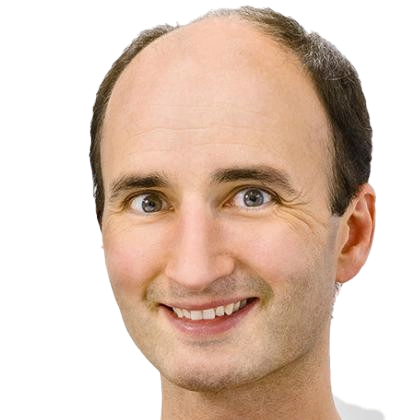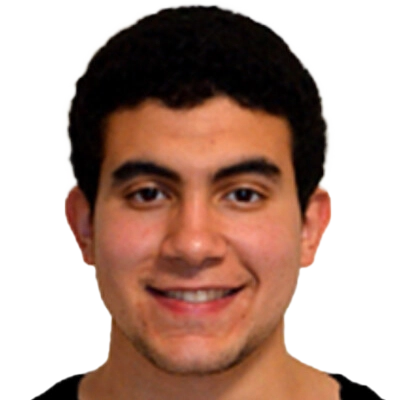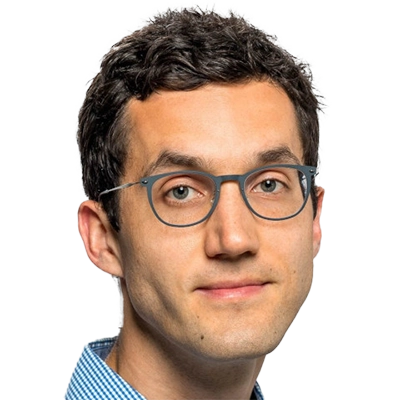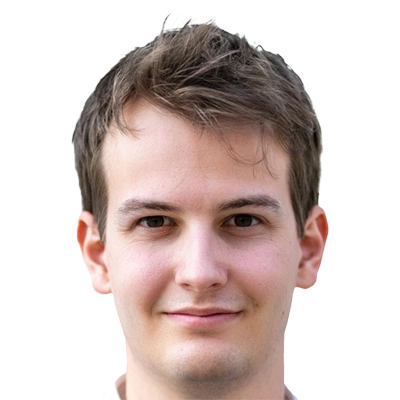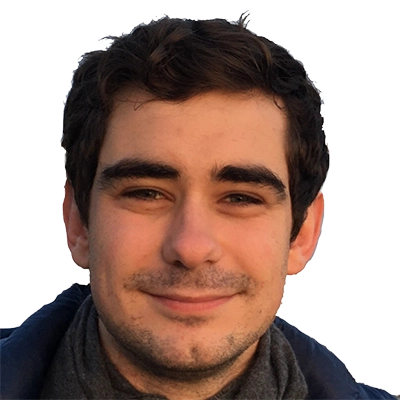15.06.2023
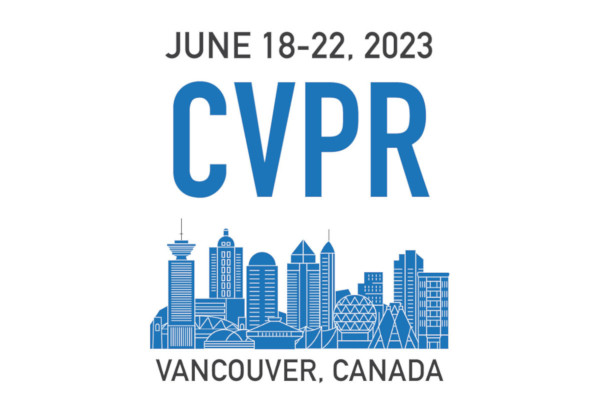
MCML Researchers With Eight Papers at CVPR 2023
IEEE/CVF Conference on Computer Vision and Pattern Recognition (CVPR 2023). Vancouver, Canada, 18.06.2023–23.06.2023
We are happy to announce that MCML researchers are represented with eight papers at CVPR 2023. Congrats to our researchers!
Main Track (8 papers)
G-MSM: Unsupervised Multi-Shape Matching with Graph-based Affinity Priors.
CVPR 2023 - IEEE/CVF Conference on Computer Vision and Pattern Recognition. Vancouver, Canada, Jun 18-23, 2023. DOI GitHub
Abstract
We present G-MSM (Graph-based Multi-Shape Matching), a novel unsupervised learning approach for non-rigid shape correspondence. Rather than treating a collection of input poses as an unordered set of samples, we explicitly model the underlying shape data manifold. To this end, we propose an adaptive multi-shape matching architecture that constructs an affinity graph on a given set of training shapes in a self-supervised manner. The key idea is to combine putative, pairwise correspondences by propagating maps along shortest paths in the underlying shape graph. During training, we enforce cycle-consistency between such optimal paths and the pairwise matches which enables our model to learn topology-aware shape priors. We explore different classes of shape graphs and recover specific settings, like template-based matching (star graph) or learnable ranking/sorting (TSP graph), as special cases in our framework. Finally, we demonstrate state-of-the-art performance on several recent shape correspondence benchmarks, including realworld 3D scan meshes with topological noise and challenging inter-class pairs.
MCML Authors

Laura Leal-Taixé
Prof. Dr.
Principal Investigator
* Former Principal Investigator
Semidefinite Relaxations for Robust Multiview Triangulation.
CVPR 2023 - IEEE/CVF Conference on Computer Vision and Pattern Recognition. Vancouver, Canada, Jun 18-23, 2023. DOI
Abstract
We propose an approach based on convex relaxations for certifiably optimal robust multiview triangulation. To this end, we extend existing relaxation approaches to non-robust multiview triangulation by incorporating a least squares cost function. We propose two formulations, one based on epipolar constraints and one based on fractional reprojection constraints. The first is lower dimensional and remains tight under moderate noise and outlier levels, while the second is higher dimensional and therefore slower but remains tight even under extreme noise and outlier levels. We demonstrate through extensive experiments that the proposed approaches allow us to compute provably optimal re-constructions even under significant noise and a large percentage of outliers.
MCML Authors
Cross-Image-Attention for Conditional Embeddings in Deep Metric Learning.
CVPR 2023 - IEEE/CVF Conference on Computer Vision and Pattern Recognition. Vancouver, Canada, Jun 18-23, 2023. DOI
Abstract
Learning compact image embeddings that yield seman-tic similarities between images and that generalize to un-seen test classes, is at the core of deep metric learning (DML). Finding a mapping from a rich, localized image feature map onto a compact embedding vector is challenging: Although similarity emerges between tuples of images, DML approaches marginalize out information in an individ-ual image before considering another image to which simi-larity is to be computed. Instead, we propose during training to condition the em-bedding of an image on the image we want to compare it to. Rather than embedding by a simple pooling as in standard DML, we use cross-attention so that one image can iden-tify relevant features in the other image. Consequently, the attention mechanism establishes a hierarchy of conditional embeddings that gradually incorporates information about the tuple to steer the representation of an individual image. The cross-attention layers bridge the gap between the origi-nal unconditional embedding and the final similarity and al-low backpropagtion to update encodings more directly than through a lossy pooling layer. At test time we use the re-sulting improved unconditional embeddings, thus requiring no additional parameters or computational overhead. Ex-periments on established DML benchmarks show that our cross-attention conditional embedding during training im-proves the underlying standard DML pipeline significantly so that it outperforms the state-of-the-art.
MCML Authors
Zero-Shot Noise2Noise: Efficient Image Denoising without any Data.
CVPR 2023 - IEEE/CVF Conference on Computer Vision and Pattern Recognition. Vancouver, Canada, Jun 18-23, 2023. DOI
Abstract
Recently, self-supervised neural networks have shown excellent image denoising performance. How-ever, current dataset free methods are either computationally expensive, require a noise model, or have inad-equate image quality. In this work we show that a simple 2-layer network, without any training data or knowledge of the noise distribution, can enable high-quality image denoising at low computational cost. Our approach is motivated by Noise2Noise and Neighbor2Neighbor and works well for denoising pixel-wise independent noise. Our experiments on artificial, real-world cam-era, and microscope noise show that our method termed ZS-N2N (Zero Shot Noise2Noise) often outperforms ex-isting dataset-free methods at a reduced cost, making it suitable for use cases with scarce data availability and limited compute.
MCML Authors
Learning Correspondence Uncertainty via Differentiable Nonlinear Least Squares.
CVPR 2023 - IEEE/CVF Conference on Computer Vision and Pattern Recognition. Vancouver, Canada, Jun 18-23, 2023. DOI
Abstract
We propose a differentiable nonlinear least squares framework to account for uncertainty in relative pose estimation from feature correspondences. Specifically, we introduce a symmetric version of the probabilistic normal epipolar constraint, and an approach to estimate the co-variance of feature positions by differentiating through the camera pose estimation procedure. We evaluate our approach on synthetic, as well as the KITTI and EuRoC real-world datasets. On the synthetic dataset, we confirm that our learned covariances accurately approximate the true noise distribution. In real world experiments, we find that our approach consistently outperforms state-of-the-art non-probabilistic and probabilistic approaches, regardless of the feature extraction algorithm of choice.
MCML Authors
Simple Cues Lead to a Strong Multi-Object Tracker.
CVPR 2023 - IEEE/CVF Conference on Computer Vision and Pattern Recognition. Vancouver, Canada, Jun 18-23, 2023. DOI GitHub
Abstract
For a long time, the most common paradigm in Multi-Object Tracking was tracking-by-detection (TbD), where objects are first detected and then associated over video frames. For association, most models resourced to motion and appearance cues, e.g., re-identification networks. Recent approaches based on attention propose to learn the cues in a data-driven manner, showing impressive results. In this paper, we ask ourselves whether simple good old TbD methods are also capable of achieving the performance of end-to-end models. To this end, we propose two key ingredients that allow a standard re-identification network to excel at appearance-based tracking. We extensively analyse its failure cases, and show that a combination of our appearance features with a simple motion model leads to strong tracking results. Our tracker generalizes to four public datasets, namely MOT17, MOT20, BDD100k, and DanceTrack, achieving state-of-the-art performance.
MCML Authors

Jenny Seidenschwarz
* Former Member

Laura Leal-Taixé
Prof. Dr.
Principal Investigator
* Former Principal Investigator
Power Bundle Adjustment for Large-Scale 3D Reconstruction.
CVPR 2023 - IEEE/CVF Conference on Computer Vision and Pattern Recognition. Vancouver, Canada, Jun 18-23, 2023. DOI
Abstract
We introduce Power Bundle Adjustment as an expansion type algorithm for solving large-scale bundle adjustment problems. It is based on the power series expansion of the inverse Schur complement and constitutes a new family of solvers that we call inverse expansion methods. We theoretically justify the use of power series and we prove the convergence of our approach. Using the real-world BAL dataset we show that the proposed solver challenges the state-of-the-art iterative methods and significantly accelerates the solution of the normal equation, even for reaching a very high accuracy. This easy-to-implement solver can also complement a recently presented distributed bundle adjustment framework. We demonstrate that employing the proposed Power Bundle Adjustment as a subproblem solver significantly improves speed and accuracy of the distributed optimization.
MCML Authors
Behind the Scenes: Density Fields for Single View Reconstruction.
CVPR 2023 - IEEE/CVF Conference on Computer Vision and Pattern Recognition. Vancouver, Canada, Jun 18-23, 2023. DOI
Abstract
Inferring a meaningful geometric scene representation from a single image is a fundamental problem in computer vision. Approaches based on traditional depth map prediction can only reason about areas that are visible in the image. Currently, neural radiance fields (NeRFs) can capture true 3D including color, but are too complex to be generated from a single image. As an alternative, we propose to predict an implicit density field from a single image. It maps every location in the frustum of the image to volumetric density. By directly sampling color from the available views instead of storing color in the density field, our scene representation becomes significantly less complex compared to NeRFs, and a neural network can predict it in a single forward pass. The network is trained through self-supervision from only video data. Our formulation allows volume rendering to perform both depth prediction and novel view synthesis. Through experiments, we show that our method is able to predict meaningful geometry for regions that are occluded in the input image. Additionally, we demonstrate the potential of our approach on three datasets for depth prediction and novel-view synthesis.
MCML Authors
Related
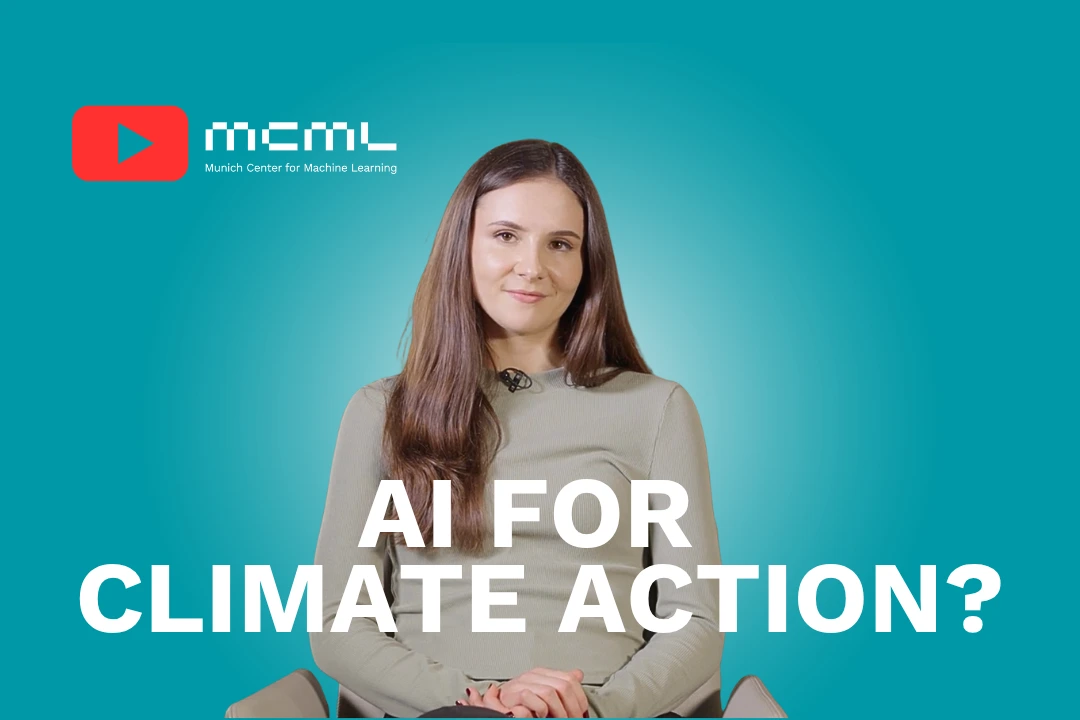
29.09.2025
Machine Learning for Climate Action - With Researcher Kerstin Forster
Kerstin Forster researches how AI can cut emissions, boost renewable energy, and drive corporate sustainability.
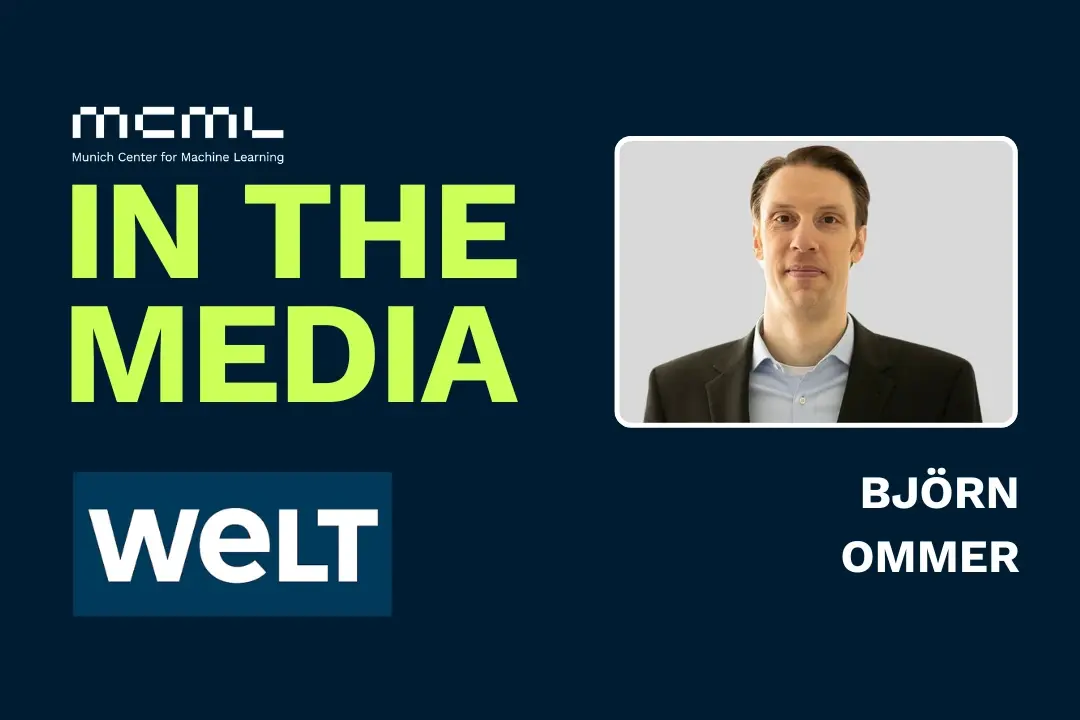
26.09.2025
Björn Ommer Featured in WELT
MCML PI Björn Ommer told WELT that AI can never be entirely neutral and that human judgment remains essential.
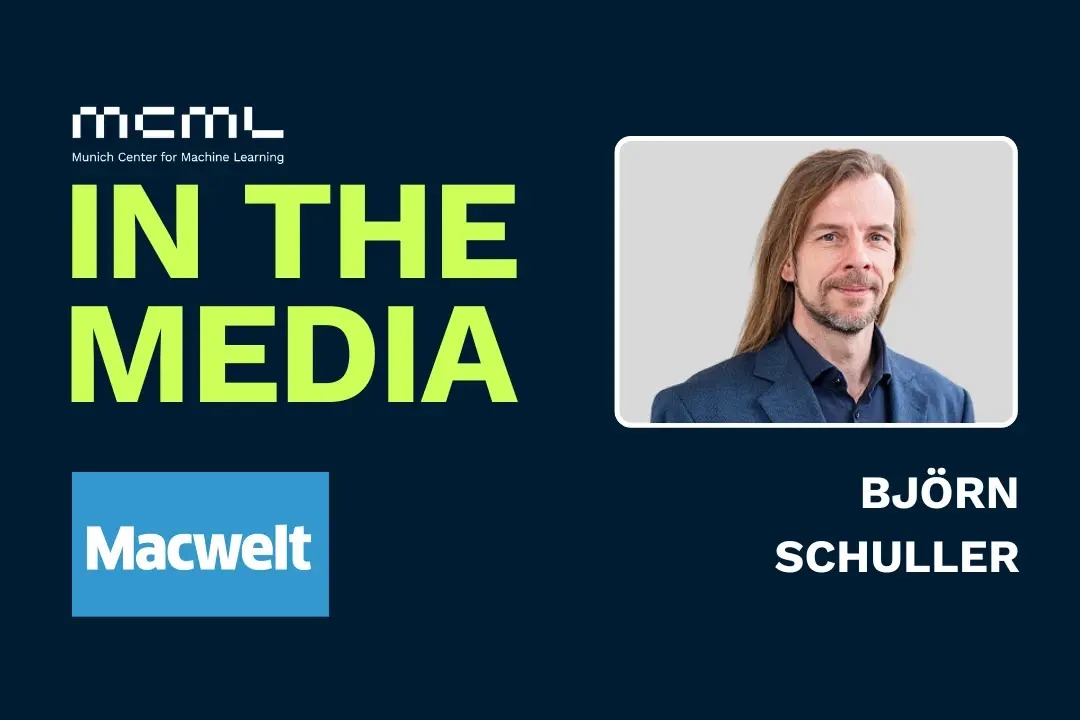
25.09.2025
Björn Schuller Featured in Macwelt Article
MCML PI Björn Schuller discusses in Macwelt how Apple Watch monitors health, detects subtle changes, and supports early intervention.
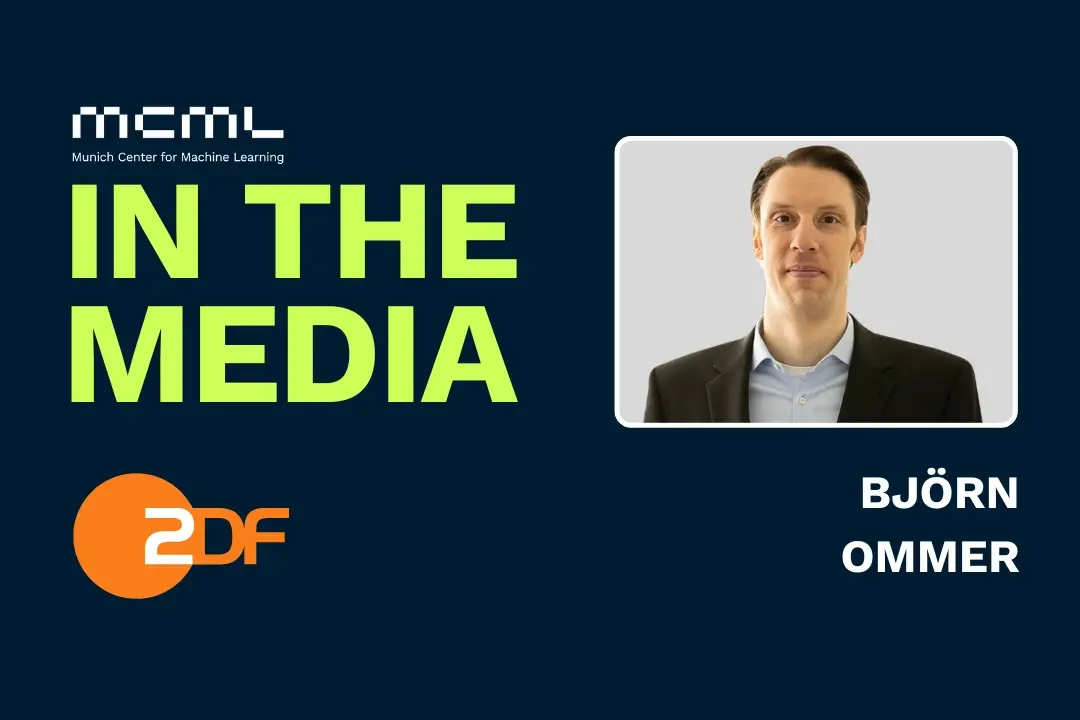
24.09.2025
MCML PI Björn Ommer Featured on ZDF NANO Talk
MCML PIs Björn Ommer & Alena Buyx discuss AI’s essence on ZDF NANO Talk, covering tech, ethics, and societal impact.
